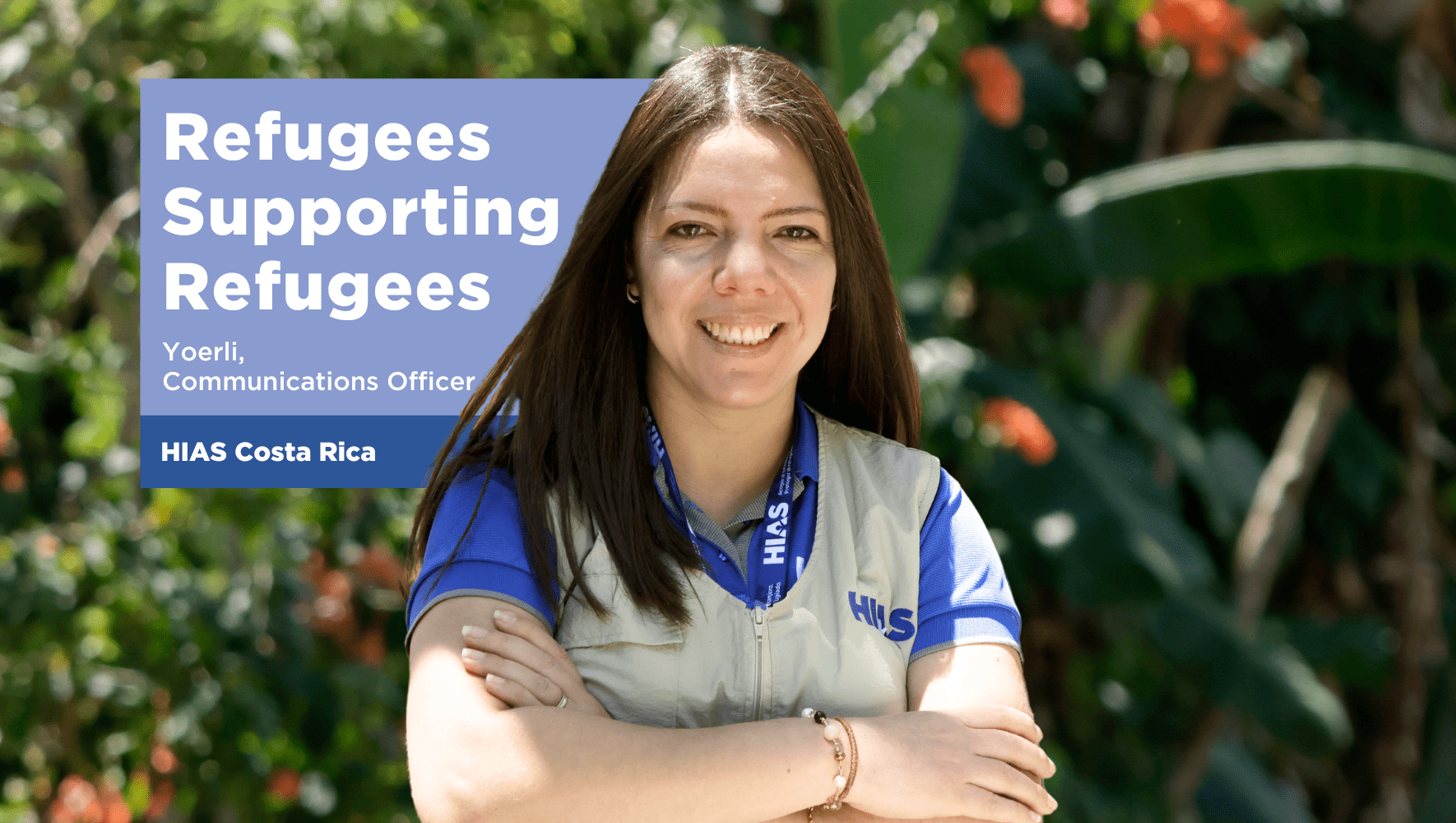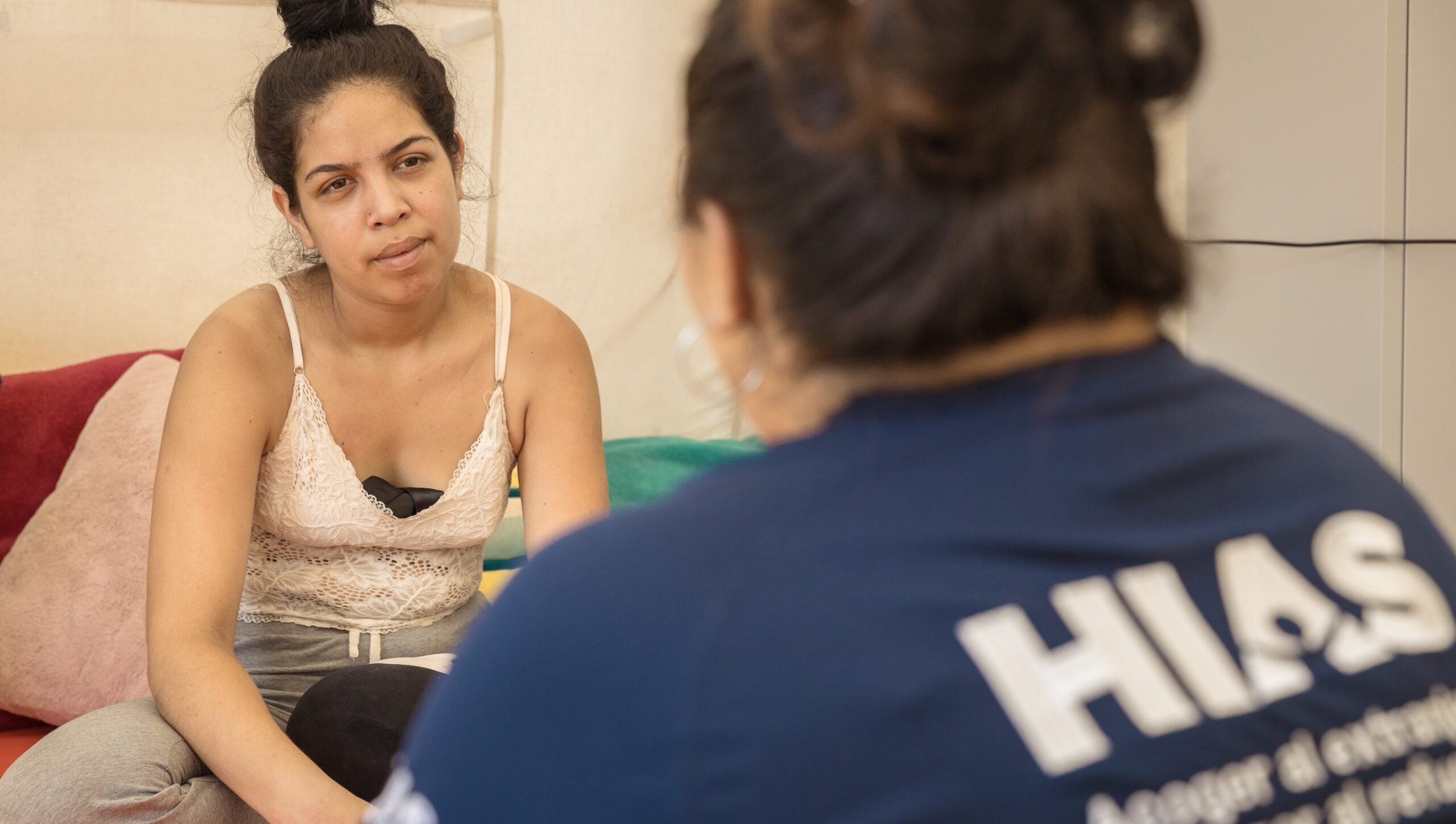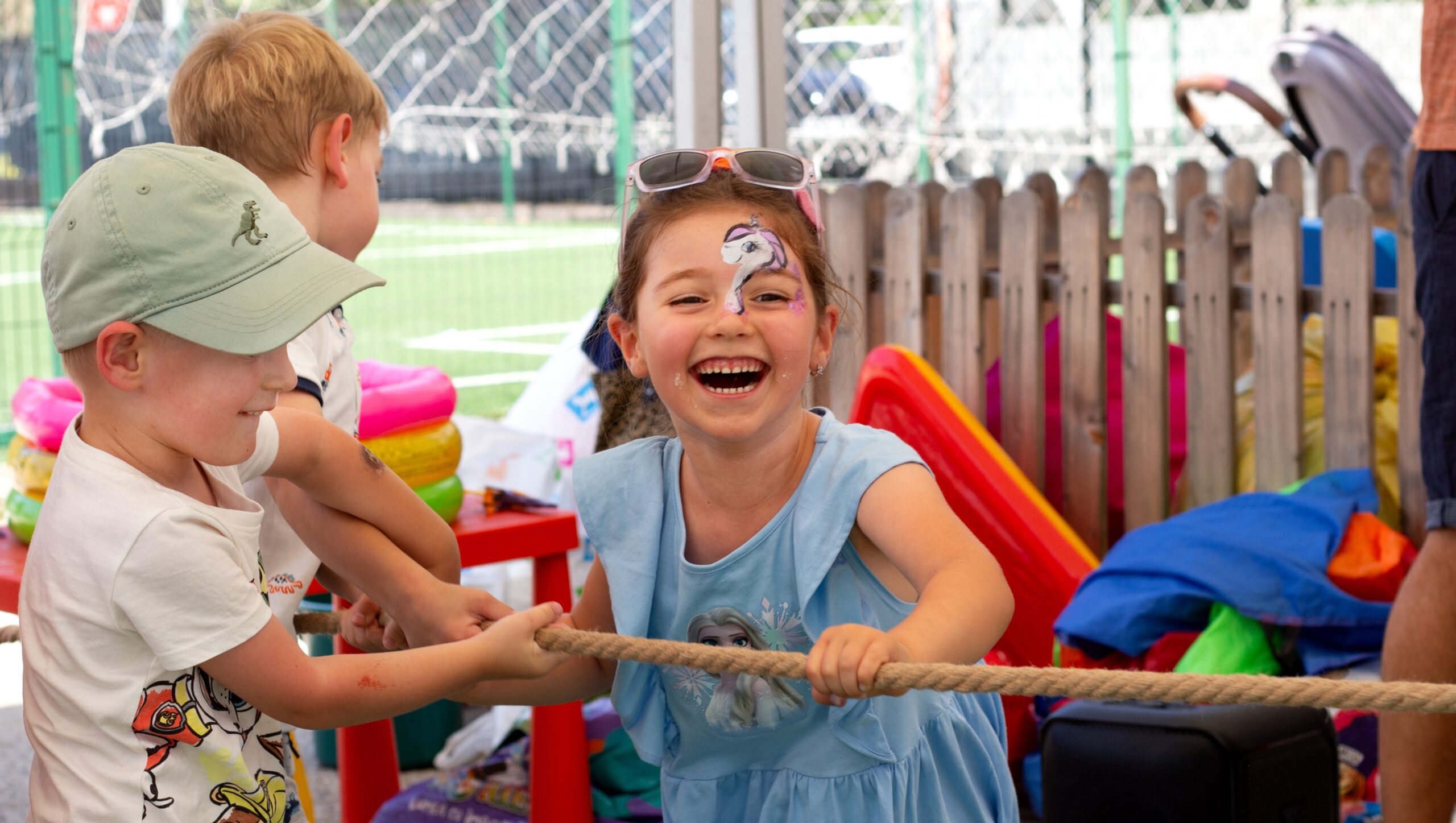
The world is a challenging place for women. The obstacles that women face to equally participate in society and enjoy their rights free from violence are still significant. And for refugee women, these barriers are even greater.
To commemorate International Women’s Day, we’re celebrating the stories of refugee women who are overcoming challenges to build a new life abroad. From chefs to entrepreneurs to activists, these women are finding hope, resilience, and courage in the most challenging circumstances.
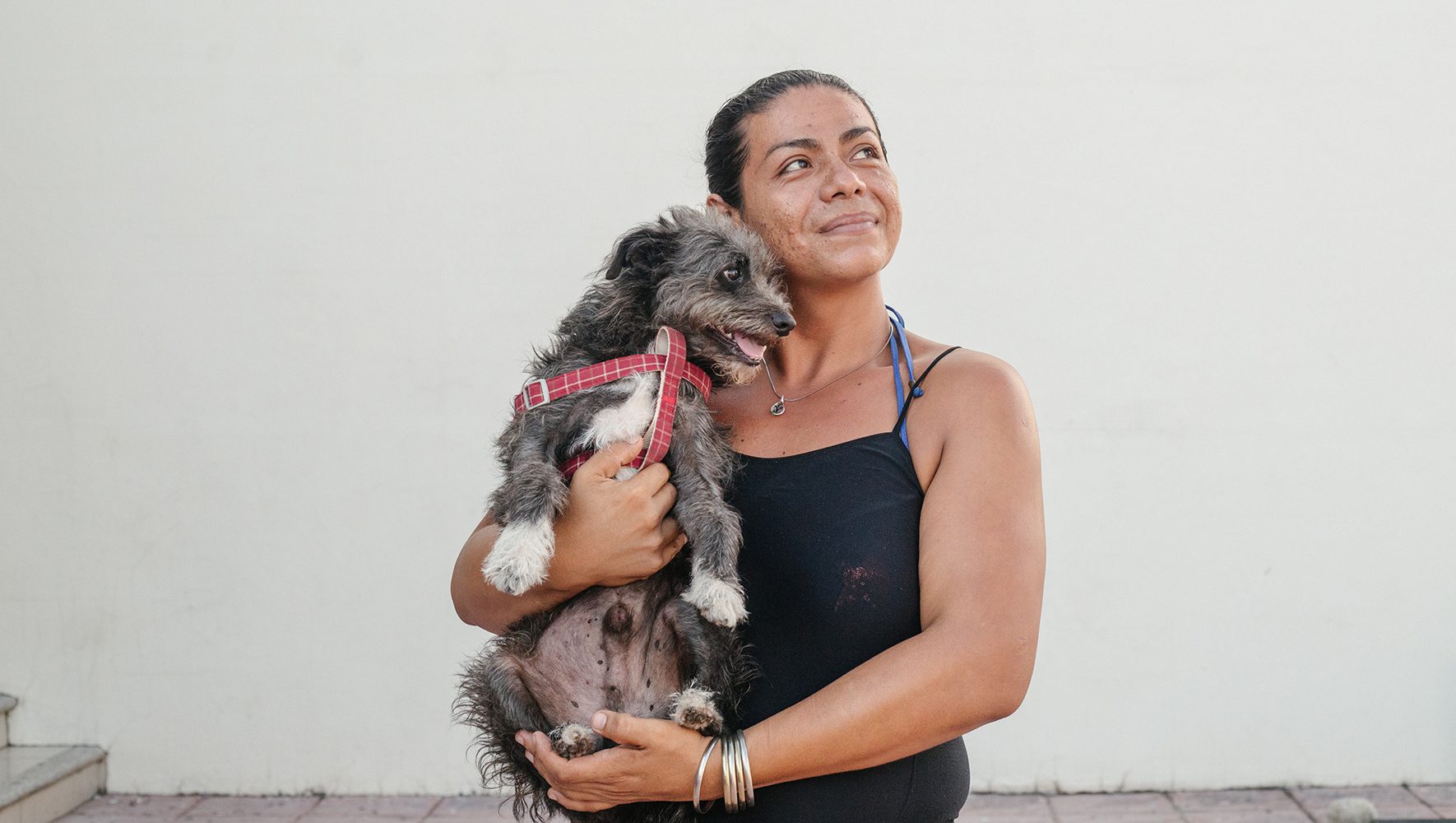
Evelin*, a transgender woman from Guatemala, poses for a photograph in Tapachula, Mexico, with her dog. September 12, 2023. (Seila Montes for HIAS)
Evelin
LGBTQ+ women living in Central America face extreme levels of discrimination and violence. Evelin*, a trans woman from Honduras, was no exception.
In Honduras, she experienced constant abuse at the hands of gang members and other members of her community who refused to accept her true gender identity. One day, after she received a death threat, she knew that she had to leave to seek safety abroad.
Evelin now advocates for LGBTQ+ and refugee rights in Mexico, where she resides along with her dog who accompanied her on her journey. She received psychological and legal support from the HIAS Mexico team and is feeling hopeful about her future.
“I know that I can help change the stigma that the LGBTQ+ community faces,” Evelin said. “I’d love to empower myself more, to be able to study at university so that I can help people in need.”
Natalia
Natalia arrived in Poland with her 5-year-old son in 2022, right after the outbreak of full-scale war in Ukraine. Though her husband remained, Natalia thought this would be temporary: She believed that the war would soon end and that he would be able to return home. Natalia was able to live on her savings for four months, but soon required assistance.
Natalia found out on social media about a women’s center at Dobry Start, a HIAS Poland partner, and soon started meeting with a psychologist. She enrolled in Polish language courses, and a career advisor helped her look for a job as a florist, creating a CV and a portfolio of her work.
In a short time, Natalia got an interview, and after impressing the potential employer with her skills at flower arranging, was offered the job. “I received great help from the ladies from the center,” Natalia said. “I have a job that I like, and I can easily support myself and my child in Poland. I’m finally smiling.”
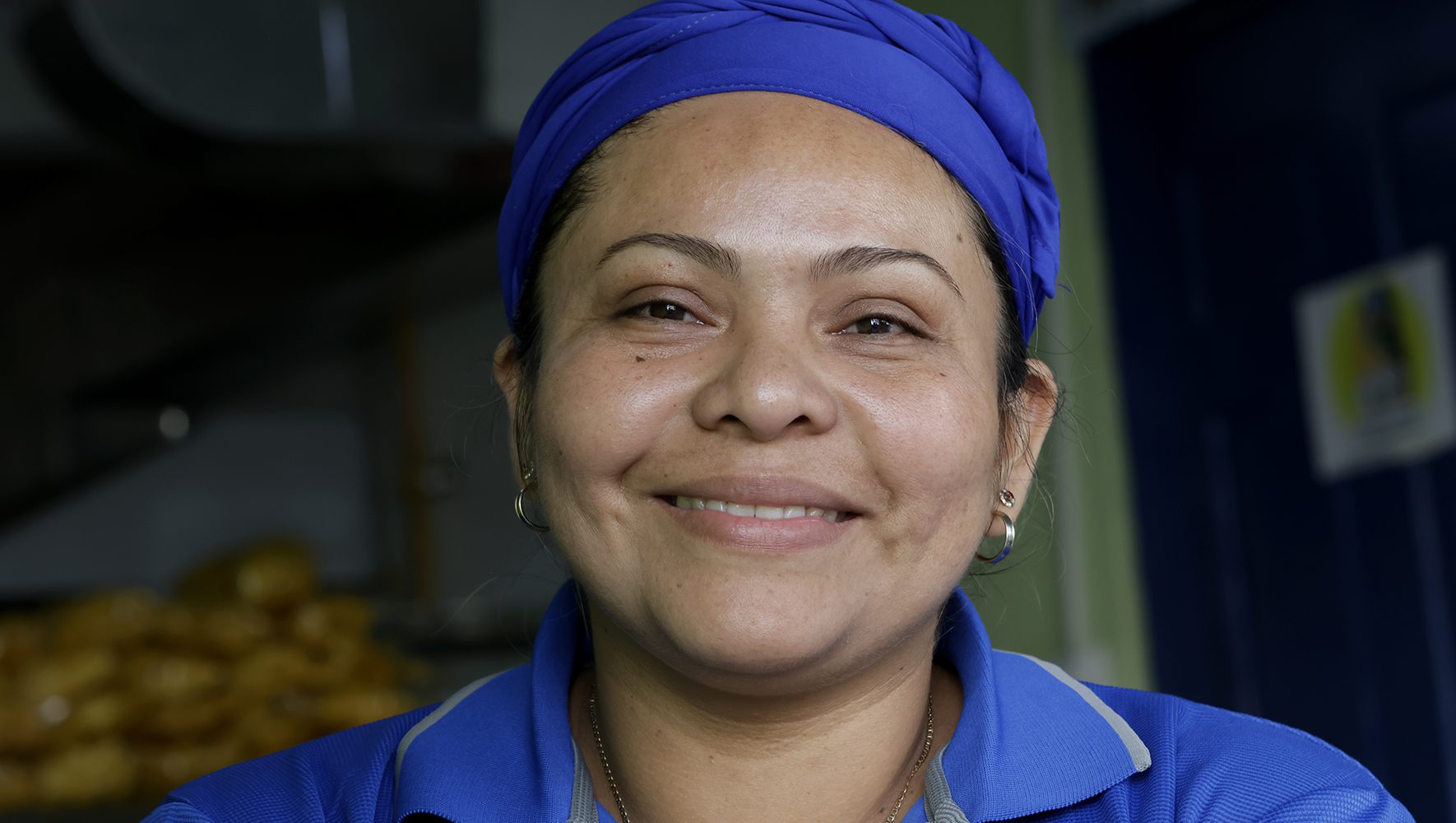
Refugee Angela*, 36, at her restaurant that she started after completing the Graduation Model Approach (GMA) program with HIAS Costa Rica. July 20, 2023. San José, Costa Rica. (Mayela Lopez for HIAS)
Angela
When Angela* joined a protest in her home country in 2018, she ended up in prison. Tortured and beaten, she did not know if she would survive.
Angela was eventually released — but she suffered traumatic injuries. She immediately fled to the border with Costa Rica, where she applied for asylum. Five years later, Angela is now settled in San José, where she is the proud owner of a restaurant.
Angela opened her restaurant with the support of HIAS Costa Rica, who provided her with business and financial training courses, legal support to register the business, and psychological support to navigate the daily challenges of being a new business owner.
“HIAS was the first place that I received emotional support,” said Angela. “They helped me to start my business. If it wasn’t for this, I wouldn’t have my restaurant today.”
Smahan
A single mother from Morocco, Smahan was living in Turkey in 2018 when she was abandoned by her partner. Struggling to survive under harsh conditions, she decided to leave Turkey and make the long journey on foot to Greece. In Patra, she lived in a shelter for vulnerable women where she gave birth to a girl in July 2018. Two years later, she moved to Athens with her daughter and settled in another shelter for women and their children.
Smahan is currently taking Greek lessons and actively seeks to participate in activities that could promote her integration prospects. For several months, through the MHPSS program of HIAS Greece, she has received individual psychological support on a weekly basis and has connected with educational and other services.
HIAS Greece’s continuous support has proved crucial for Smahan’s mental resilience and overall wellbeing, helping her regain control and stability in her life. “I feel relieved because HIAS gave me the chance to talk about me, about my life, about my problems,” Smahan said. “I feel respected. You show respect to me, and my decisions and my mistakes. You listen to me, and I can trust you.”
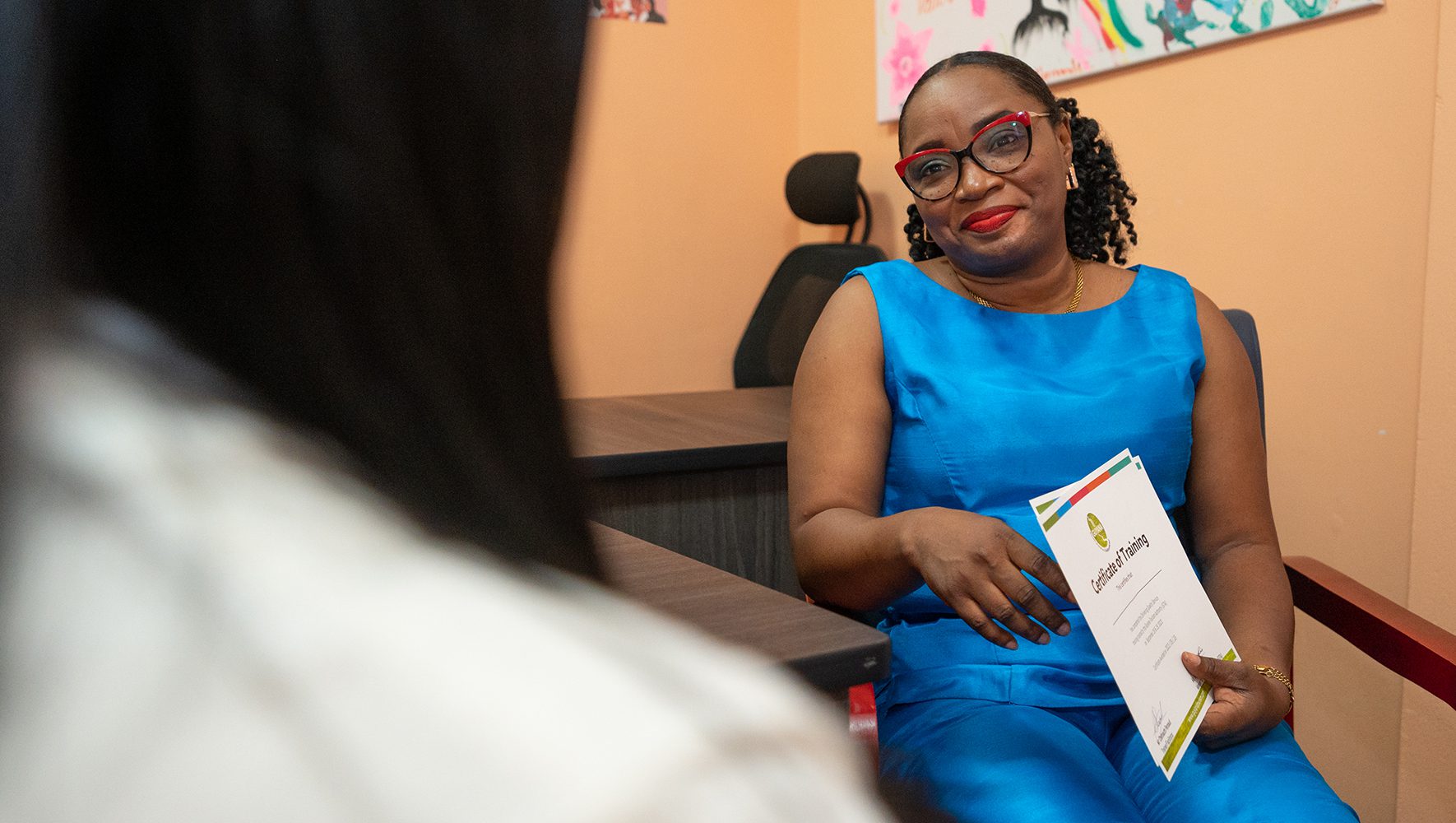
Esther* shares her experience on participating in the Economic Inclusion program with HIAS staff at the office in Georgetown, Guyana. December 7, 2023. (Keno George for HIAS)
Esther
When she and her family in Haiti became a target of death threats three years ago, Esther* started packing her bags. Even though she had a well-established business, a home, and a large base of clients, she left it all behind and bought a one-way ticket to one of the few countries she was able to enter without a visa: Guyana.
Now, Esther is living in Georgetown, Guyana’s capital, where she has received psychological and economic inclusion support from HIAS Guyana. As a creative person with a successful business back home, she’s now making plans to open a restaurant in Guyana that can teach people about the diverse flavors of Haitian cuisine.
“Thanks to HIAS, I’m hopeful again and feel like I can achieve my dreams,” Esther said. “HIAS was the first place that made me feel welcomed here and now I know that tomorrow will be better than the day before.”
*Names have been changed to protect the identity of some of the program participants.
